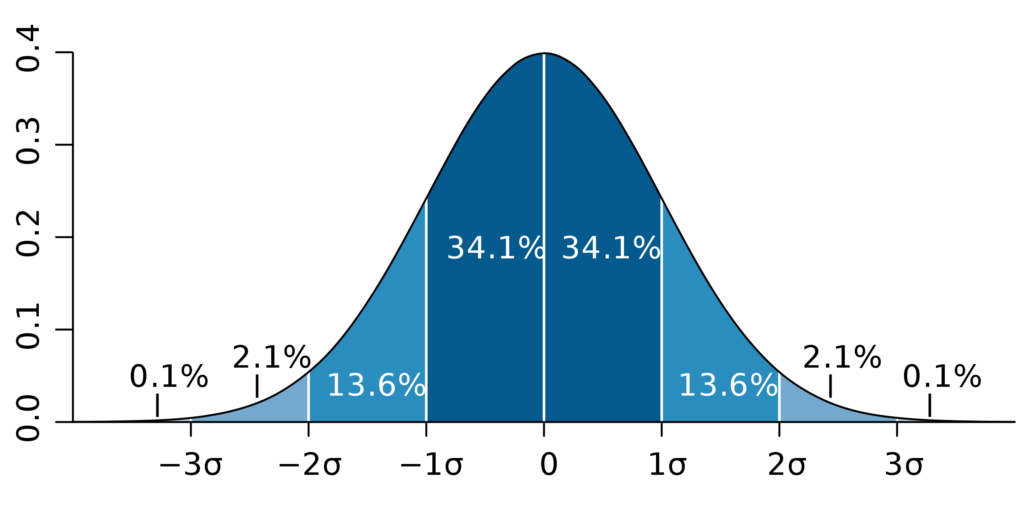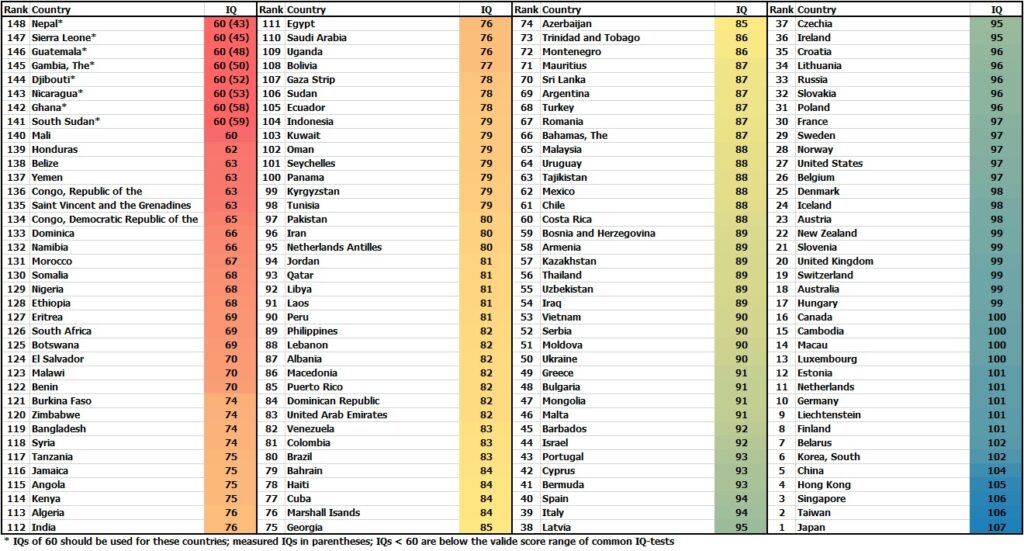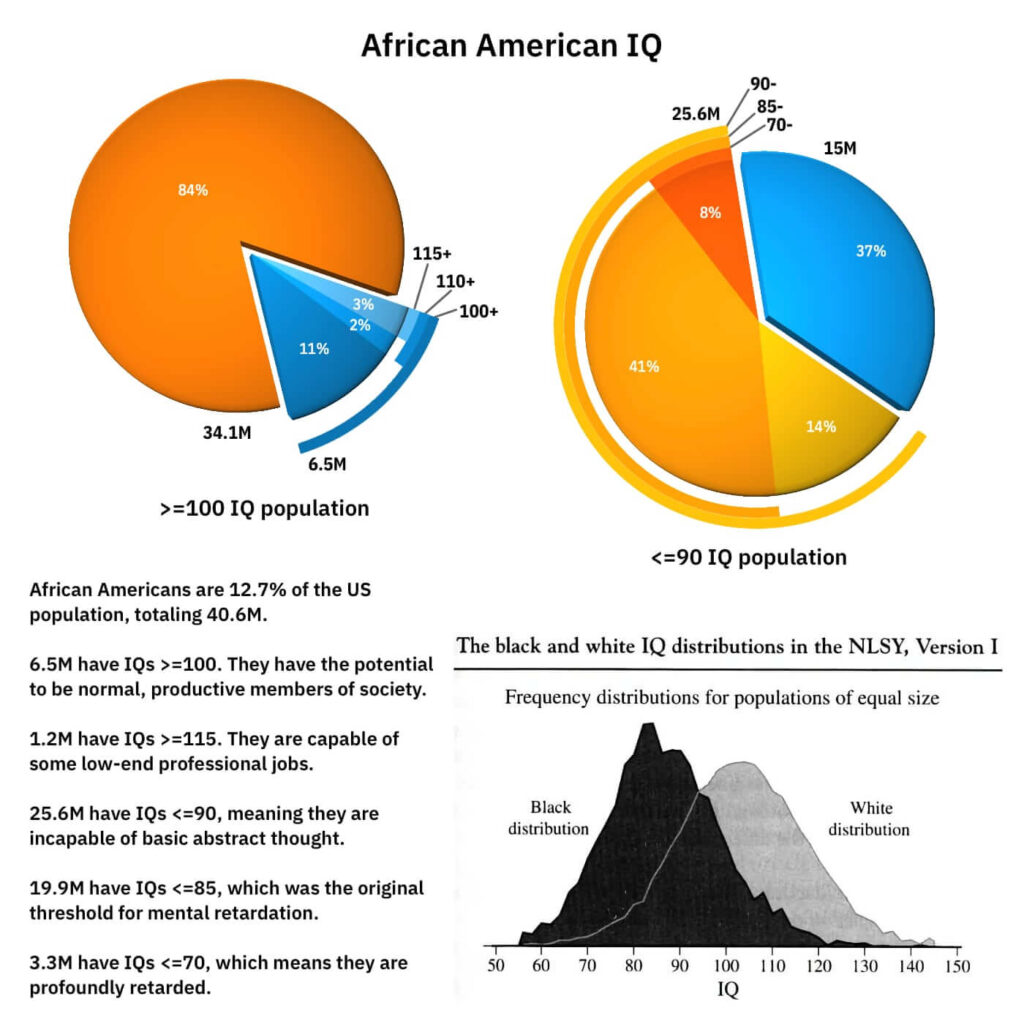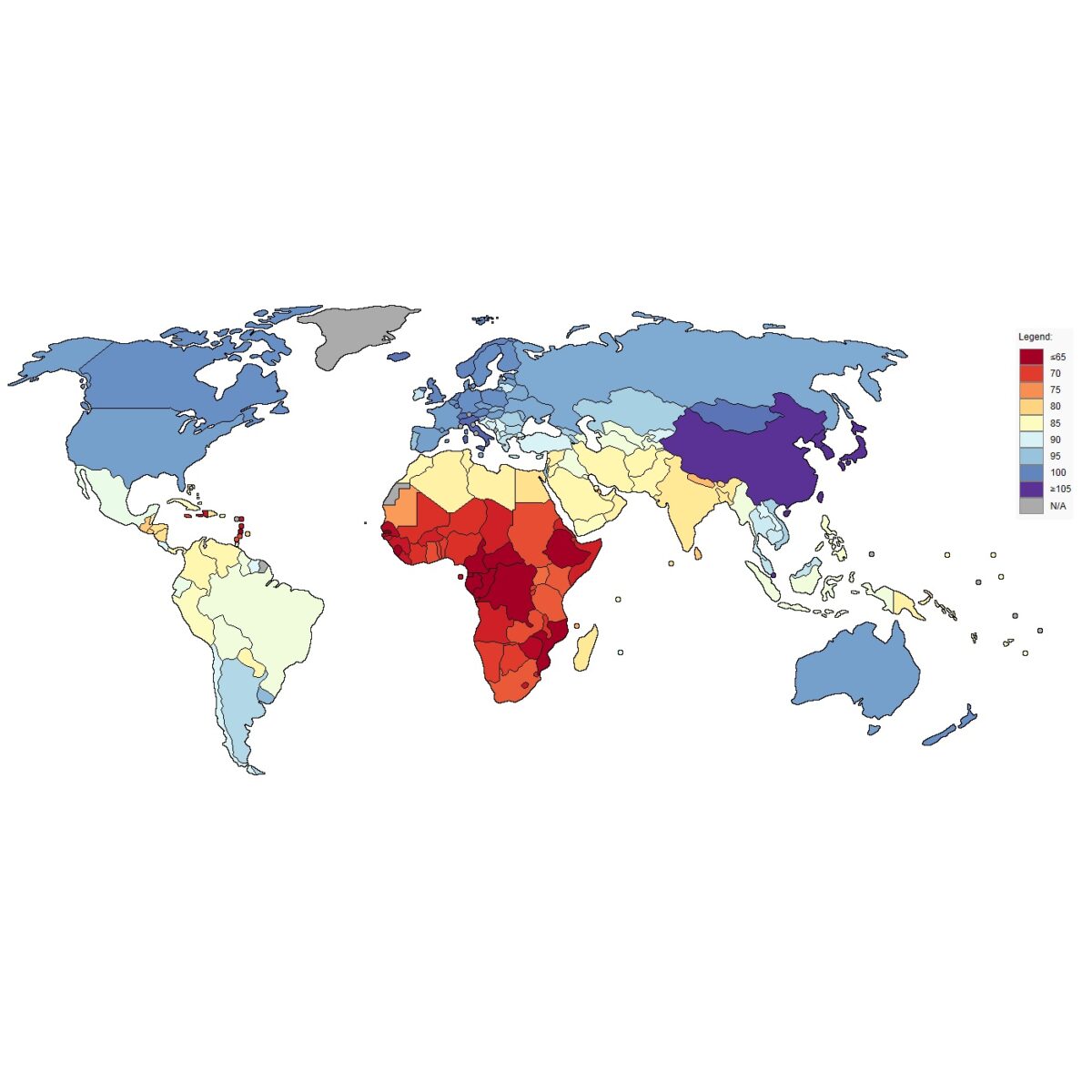On Human Race: IQ
Podcast: Play in new window | Download (Duration: 1:56:22 — 221.8MB) | Embed
Subscribe: Apple Podcasts | Spotify | Amazon Music | More
Hosts

Corey J. Mahler

God has given to men many attributes, and these attributes are not evenly or equally distributed. Some men are taller than others; some men are faster than others; and some men are more intelligent than others. The subject to human intelligence — IQ — makes many uncomfortable for a number of reasons, but it is no less real and no less a part of God’s good ordering of Creation than is height or any other attribute.
Intelligence is largely genetic — overwhelmingly so, in fact. If your parents are or were intelligent, then it is very likely that you will be so as well. This holds even more true for human populations (e.g., races), as they share a common genetic pool. Some races are more intelligent than others. IQ is not the same from one nation to the next.
Now, the issue of human intelligence can certainly be, in and of itself, a fascinating area of study or research, but that is not our primary concern; rather, we are concerned with how human intelligence interacts with the Church. Is there a minimum intelligence for the preservation of the Church and her treasury of God’s Word and truth? Can the Western Church survive if all her members are replaced with foreign souls? Can the Church survive the ongoing replacement of Europeans by alien peoples?
These are not idle questions and the answers are not so much a matter of life and death, but of eternal life and eternal death. We have been given a sacred trust — the Word of God and His bride, the Church. Whether we will be faithful or flounder remains to be seen, but the present trajectory is most certainly grim.
Subscribe to the podcast here.
Show Notes




Further Reading
Parental Warnings
- Some of the terms used in this episode are considered offensive in modern speech, but are all used in their technical sense.
- The show notes include an image and video clip with a number of expletives.
Errata
- When discussing the four-sigma numbers at ~00:07:21–00:07:38, I (Mahler) failed to note that I was working with a decimal chart and did not convert from decimal to percentage (which I should have done) and so stated — twice — that the four-sigma portion of the population is “point one percent”, when, in fact, I should have said that it is 0.001%. Point one percent of one when working in decimal (1.0 being 100) is, in fact, 0.001%, but it is decidedly unhelpful not to mention that one is working with a decimal chart, and thus implying 0.1%. (It is actually 0.000892201505099236%, but I suspect I can be forgiven for rounding.)
Current Sponsor(s)
Coming soon?
Support the Podcast
- Recurring Donation
- One-Time Donation
- Mahler’s Amazon.com Wish List
- Woe’s Amazon.com Wish List
- The Stone Choir 2024 Challenge Coin
- Update: Shipping has begun.
Comments?
Join the discussion on Telegram, visit the feedback form or comment below.
